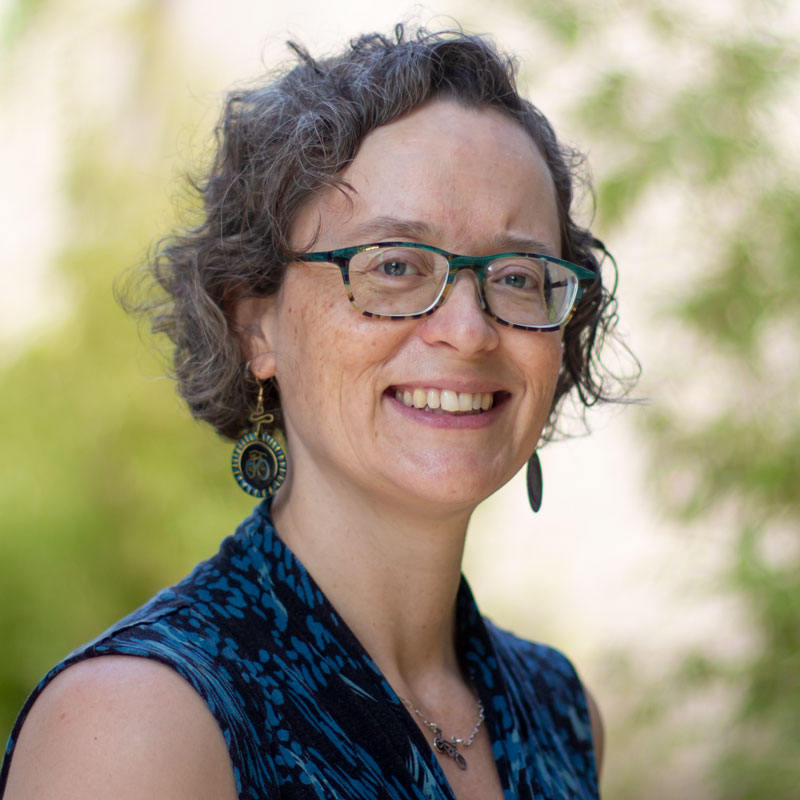Open Access Week spotlights climate justice

Open for Climate Justice, the theme of this year's Open Access Week, challenges the global community to join together, raise awareness and take action in order to tackle our climate crisis. Image courtesy of International Open Access Week
How do we solve the enormous environmental challenges facing our planet? A good first step is to increase access to information and research.
Open Access Week, an annual week promoting equitable and accessible information, kicks off Oct. 24 and runs through Oct. 30. The theme, Open for Climate Justice, challenges the global community to join together, raise awareness and take action in order to tackle our climate crisis.
Anali Maughan Perry, head of the Open Science and Scholarly Communication Division at the ASU Library, sat down with ASU News to share five things to know about this year’s Open Access Week. Perry is the scholarly communication librarian and represents ASU in the Coalition of Open Access Policy Institutions.
Question: What is Open Access Week?
Answer: International Open Access Week is a time for the wider community to coordinate in taking action to make openness the default for research and to ensure that equity is at the center of this work. The event is celebrated by individuals, institutions and organizations around the world. Open access is the free, unrestricted access to the results of scholarly research — free from paywalls for readers, and enabling the use, reuse and building upon the work of others to advance our knowledge and understanding of ourselves and the world around us.
Q: Why is it important to bring awareness to open access?
A: Open access is rooted in the ethical principle of information being unchained, supporting the belief that knowledge is an inalienable human right guaranteed to all. When everyone is able to access and read the most current, cutting-edge research in their areas of interest, regardless of institutional privilege or affiliation, they are empowered to make better decisions, and the potential for generating new knowledge from different perspectives is there in a way it hasn’t been before.
Anali Maughan Perry
Q: The 2022 theme is “Open for Climate Justice” — how are climate justice and open access related?
A: Open access has been a successful strategy for rapidly addressing other public health emergencies, most recently faciltating the unprecedented development of vaccines and effective treatments for the COVID-19 pandemic. This year’s focus on climate justice seeks to encourage connection and collaboration among the climate movement and the international open community. Tackling the climate crisis requires the rapid exchange of knowledge across geographic, economic and disciplinary boundaries — and open access is the best way to open that conversation to researchers and experts around the world.
Q: What do you see as the biggest barrier for open access?
A: Charging authors for article processing fees (APCs) has become the most prevalent business model for supporting open access journal publishing for most of the major journal publishers. This shifts a burden for payment away from readers, which is a good thing, but then limits who gets published to who is able to pay. This is definitely not a better situation — it perpetuates existing inequalities and privileges better-funded researchers and institutions.
To be clear though, there are lots of other pathways to open access — this one just tends to be the most well known and is often the easiest. Like many other things in our society, being able to pay can really smooth the way.
Q: What resources are available at the ASU Library to help faculty, researchers and students navigate open access?
A: Check out our Open Access Library Guide for more information about open access, different strategies for making your work open, and a current list of ways the ASU Library supports ASU authors in waiving or reducing APCs.
And stay tuned to the Researcher Support blog during Open Access Week as we share more news and articles about open access issues. We’ll be talking about open access to research data, strategies for determining which open access journal to publish, the NIH Data Management and Sharing Policy, and highlights from Open Access Week events around the world.
More Science and technology

ASU forensics expert explains DNA tech being used in Guthrie investigation
It’s been more than 30 days since Nancy Guthrie disappeared from her Tucson, Arizona, home, and with little physical evidence…

Digital crimes leave data trails; these students built a tool to help explain them
In a courtroom, truth often hinges on storytelling. But when that story involves hex values, file systems, packet captures or…

From traffic systems to trustworthy AI, ASU students are solving problems the world can’t ignore
How do you trust artificial intelligence when it doesn’t know what it doesn’t know? How do you safely move computing systems…
